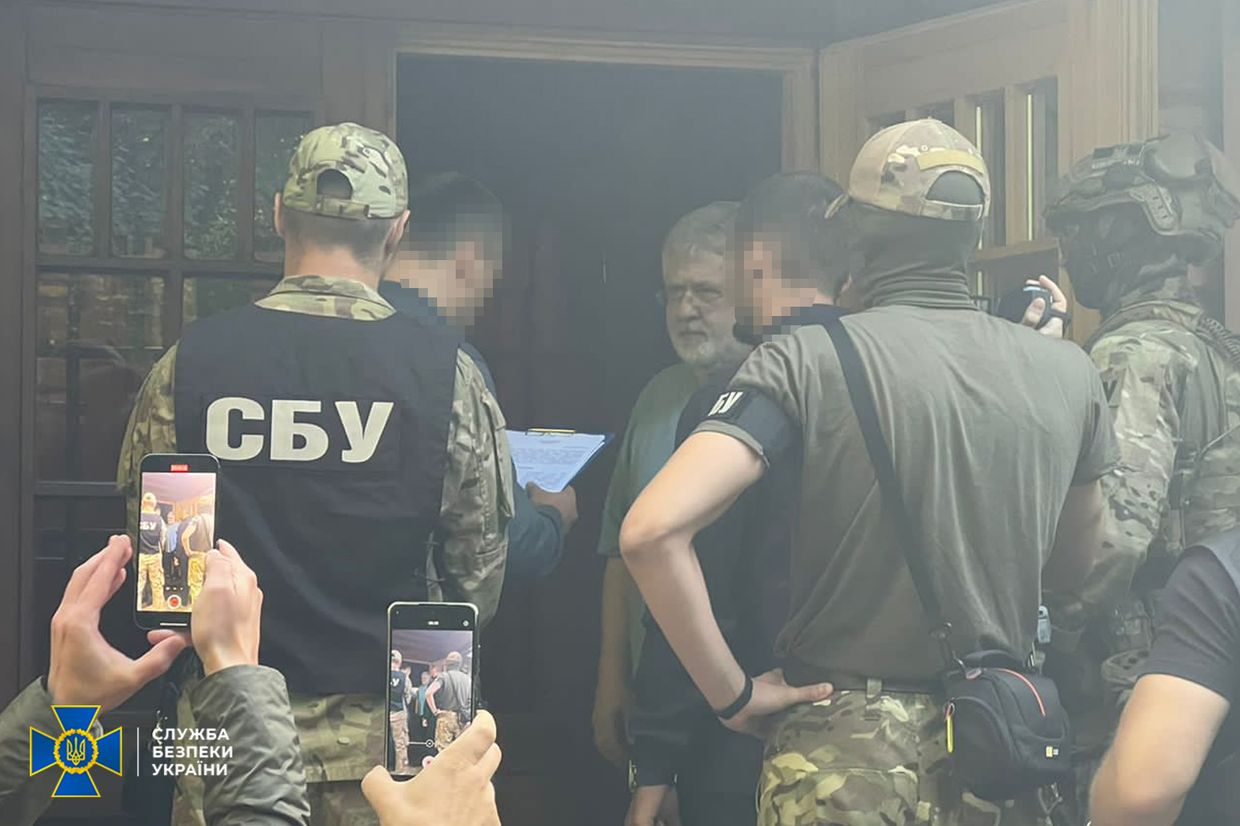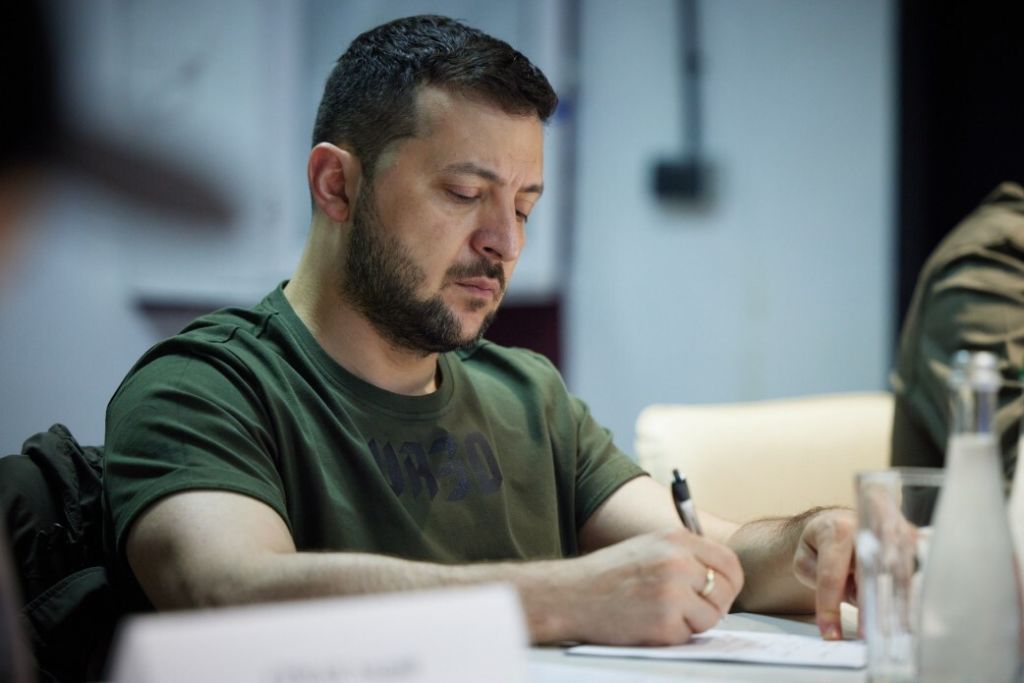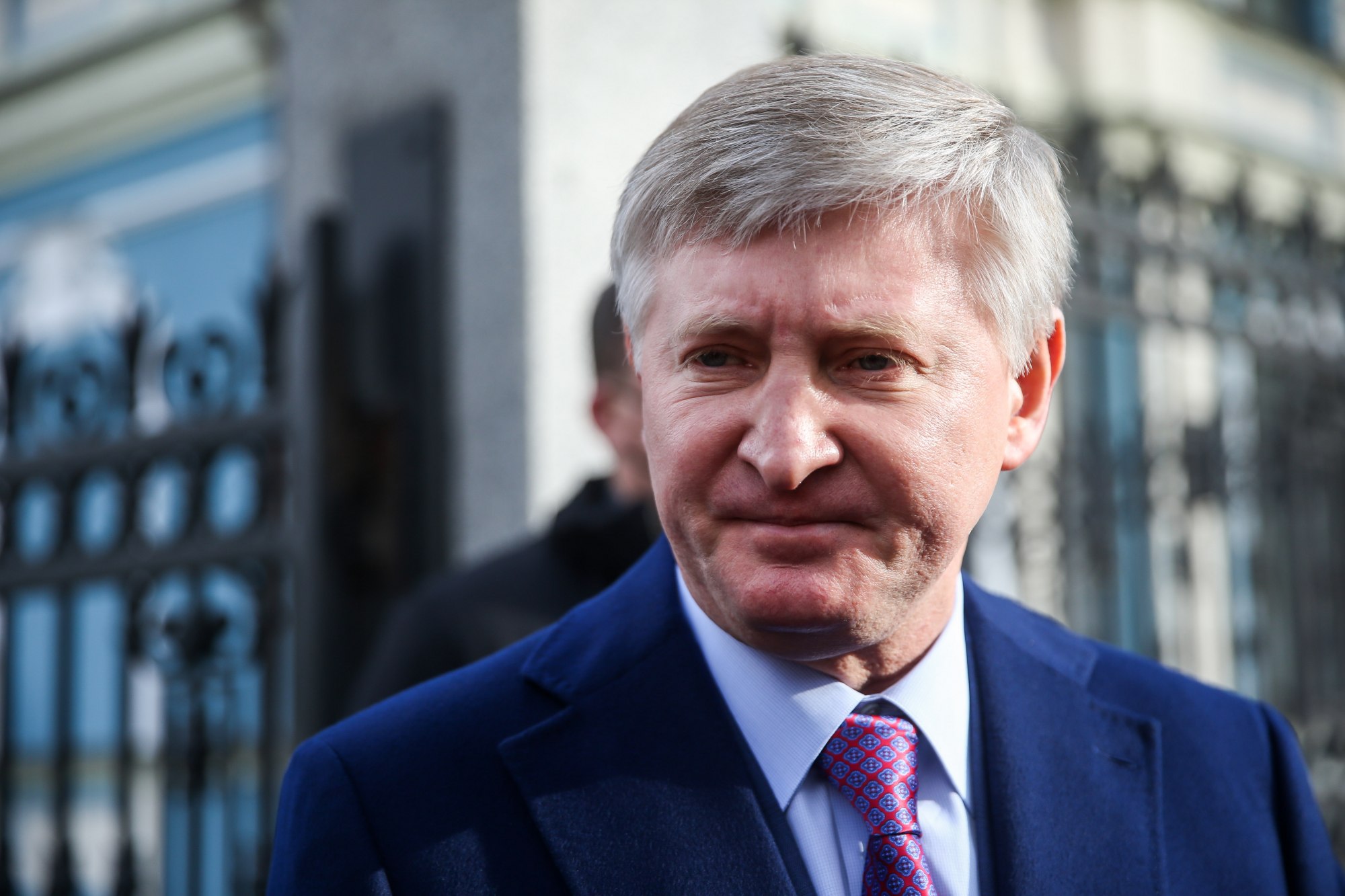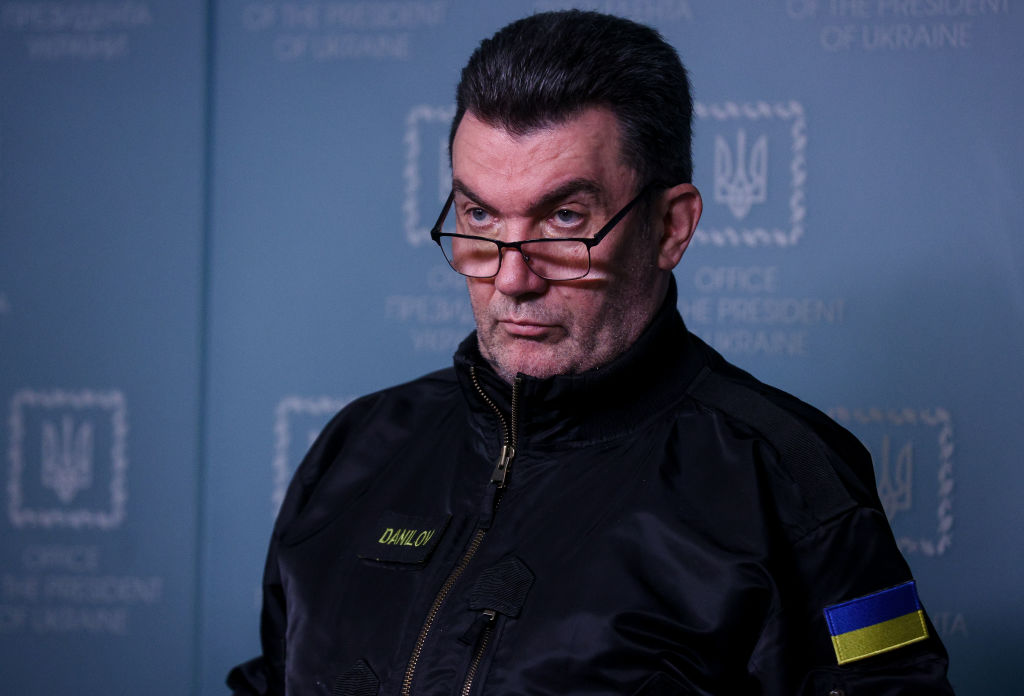Oligarch Kolomoisky is behind bars. How did he get there and can he find a way out?

Ihor Kolomoisky's recent arrest is the latest episode in a prolonged, hard-fought slide from grace for one of Ukraine's most notorious oligarchs.
At his height, he governed a region, controlled huge chunks of multiple industries, made good use of his massive TV network, and a cadre of loyal politicians.
Now, some of his biggest investments are nationalized, his global assets frozen, he's got legal issues in half a dozen countries, and he's sanctioned, pending charges in the U.S.
Worse, he may no longer have his Ukrainian citizenship, which provided him the only ironclad protection against being extradited — though the facts are still ambiguous on that.
Oligarch behind bars
On Sept. 2, Kolomoisky was charged with fraud and money laundering.
The Security Service of Ukraine said he moved Hr 500 million ($13.5 million) out of the country from 2013 to 2020. His bail was set at just over the same amount — and Kolomoisky refused to pay it. He'll be in pre-trial detention for up to two months.
Why he was charged now, 20 months into the full-scale invasion, remains a subject of debate.
Ukraine's investment banker and commentator Serhiy Fursa believes there's a very good possibility that it just took that long because it's a very complicated case. Tetiana Shevchuk, a lawyer with the Anti-Corruption Action Center, shares this view.
However, both can think of another explanation. Fursa thinks there might be some coordination and timing with other countries where Kolomoisky parked his allegedly laundered wealth, including the U.S.
And Shevchuk pointed out that the arrest happened as Ukraine is going through a series of corruption scandals. The last time Kolomoisky's house was searched, some other scandals had recently come to light as well. This may be a move by the Zelensky administration to prove that Ukraine is committed to cleaning up.
The bigger question that has arisen from the arrest hearing — did Zelensky indeed strip Kolomoisky of his Ukrainian citizenship, like the rumors said last year? If Kolomoisky is no longer a Ukrainian citizen, he can be extradited to the U.S.
A video of the judge hearing Kolomoisky's case was published online. In it, he says that the oligarch is a Ukrainian citizen. However, government adviser Serhiy Leshchenko soon stated that Kolomoisky had indeed been stripped of his citizenship and posted a page from the court documents, where the defendant, Kolomoisky, is identified as a citizen of Israel and Cyprus.
It's not certain whether the judge misspoke or there is another explanation.
These charges come on the heels of a decision that high-level corruption will be investigated by the Security Service, which has a weak record of getting the job done.
Still, as it stands, Kolomoisky's influence, at times as one of the most influential people in the country, is no more.
Crumbled empire
As oligarchs go, Kolomoisky's power at a time was said to eclipse that of the president.
Arguably, the only other billionaire from Ukraine who has that much power and public awareness is his main rival, oligarch Rinat Akhmetov, owner of a variety of energy companies, part of the SCM holding.
Unlike the stolid Akhmetov, Kolomoisky's power went hand in hand with his public stunts.
On any given day, one could find him allegedly siphoning billions of dollars out of the country through its top bank, sending a group of armed men to take over the offices of a state oil company, shutting down public questions with creative profanity or randomly calling journalists at night to rant about unrelated topics.
Kolomoisky became wealthy in much the same way other post-Soviet oligarchs did, by getting his hands on some major privatization assets for cheap in the 1990s and building on them.
The scale of his network of actual and shell companies across Ukraine and throughout the world would take years to even begin to unravel. In Ukraine, his collection of businesses had the unofficial name Privat Group.
Kolomoisky's key cash cows were in five key industries — metals, hydrocarbons, banking, media, and aviation.
At its peak, he controlled PrivatBank, Ukraine's largest bank, Ukrtatnafta oil company, DniproAzot, a major chemical company, Nikopol Ferroalloy Plant, Ukraine International Airlines, the country's biggest, 1+1 Media Group, which operated eight TV channels, and a number of other plants, factories and other businesses.
Kolomoisky owned 10 popular sports clubs, and effectively controlled Centrenergo, a major energy company, and Ukrnafta, the country's largest oil producer, despite controlling a minority state in those companies.

Through the years, he also maintained a number of close connections with a number of Ukrainian lawmakers and government officials.
When Russia invaded Ukraine in 2014, it had designs on more than just Crimea and the Donbas.
Kolomoisky, who chose an active pro-Ukrainian stance, was appointed governor of his native Dnipropetrovsk Oblast. He funded militias, thousands strong, to defend Ukrainian territory. And to protect his business interest, as it later turned out.
In March 2015, after months of growing influence and feuds with state authorities, Kolomoisky employed armed men to raid the headquarters of government-controlled Ukrnafta.
Days later, then President Petro Poroshenko stripped the oligarch of his governorship. Soon, Kolomoisky's power began to decrease.
In December 2016, Kolomoisky's largest asset, now insolvent, was nationalized by the state.
An independent forensic audit by Kroll uncovered a "large-scale and coordinated fraud" scheme that left a $5.5 billion hole in the bank's balance sheets.
According to a forensic audit, there was a smaller bank unit inside PrivatBank shuttling bogus loans between related companies. The money was moved offshore through Cyprus and London and parked in many different countries. Over half a billion ended up in the U.S., invested in properties.
Nothing came close to the magnitude of the scandal, which got him into lawsuits in Ukraine, the U.K., the U.S., Israel, Switzerland, and Cyprus, most to the tune of hundreds of millions of dollars. Not to be outdone, Kolomoisky filed his own lawsuits, trying to get his bank back.
The main international lawsuits over the fate of the bank and the oligarchs' deposits that were converted into its shares, are taking place in London, where a top court already acknowledged "fraud on an epic scale."
In the U.S., Kolomoisky is under investigation by the FBI and Department of Justice, and a sealed indictment awaits its hour.
It seemed there might be one ray of hope for Kolomoisky in the 2019 presidential election — which saw a newcomer Volodymyr Zelensky, whose comedy programs aired on Kolomoisky's channel, as the winner.
Kolomoisky's media empire was among the main driving forces of Zelensky's rise to power, and the oligarch made public statements attempting to tie Zelensky to himself.
Everyone speculated on whether Zelensky was Kolomoisky's man. But the oligarch seemed to have less influence than most people, including himself, thought.
Zelensky's party started passing laws banning the return of seized banks to their former owners and forcing oligarchs to register in a state database.
These measures have yet to impress some of the critics. Tetiana Shevchuk, a lawyer with the Anti-Corruption Action Center, said that while the current oligarchs are being weakened, a new crop might arise in the post-war period under the current system.
After the start of Russia's full-scale war, Kolomoisky saw his stake in Ukrtatnafta and Ukrnafta nationalized by the state, while his passport was allegedly stripped with Zelensky's undisclosed decree.
In the end, Kolomoisky is not yet convicted, and the process is set to be hefty, however, it's hard to see how the oligarch – once holding a grip over the largest oil company, refinery, airlines, and bank – will bounce back. However, it won't be the first time if it does happen.















